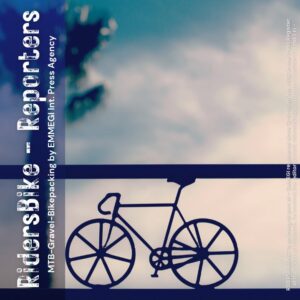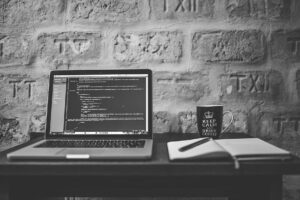
Code of ethics relating to the processing of personal data in the exercise of journalistic activity pursuant to art. 25 of Law 31 December 1996 no. 675.
Article 1 – General principles
1. These rules are intended to reconcile the fundamental rights of the person with the right of citizens to information and freedom of the press.
2. Pursuant to art. 21 of the Constitution, the journalistic profession is carried out without authorization or censorship. As an essential condition for the exercise of the right-duty to report, the collection, recording, storage and dissemination of news on events and matters relating to people, collective bodies, institutions, customs, scientific research and movements of thought, carried out in the context of journalistic activity and for the purposes specific to such activity, are clearly different in nature from the storage and processing of personal data by databases or other entities. These principles form the basis for the necessary derogations provided for in paragraphs 17 and 37 and in Article 9 of Directive 95/46/EC of the European Parliament and of the Council of the European Union of 24 October 1995 and in Law no. 675 of 1996.
Article 2 – Databases for editorial use and protection of journalists’ personal archives
1. A journalist who collects news for one of the operations referred to in Article 1, paragraph 2, letter b), of Law no. 675 of 1996 shall disclose his or her identity, profession and the purposes of the collection, unless this would pose a risk to his or her safety or otherwise make it impossible to exercise the information function; he or she shall avoid artifice and undue pressure. Once this activity has been made clear, the journalist is not required to provide the other elements of the information referred to in Article 10, paragraph 1, of Law no. 675 of 1996.
2. If personal data are collected from databases for editorial use, publishing companies are required to make known to the public, through announcements, at least twice a year, the existence of the archive and the place where it is possible to exercise the rights provided for by Law no. 675 of 1996. Publishing companies also indicate among the management data the data controller to whom interested parties can contact to exercise the rights provided for by Law no. 675 of 1996.
3. The personal archives of journalists, in any case functional to the exercise of the profession and for the exclusive pursuit of the related purposes, are protected, as regards the sources of the news, pursuant to art. 2 of Law no. 69 of 1963 and art. 13, paragraph 5, of Law no. 675 of 1996.
4. The journalist may retain the data collected for as long as necessary to pursue the purposes of his profession.
Article 3 – Protection of the home
1. The protection of the home and other places of private residence extends to places of treatment, detention or rehabilitation, in compliance with the law and the correct use of invasive techniques.
Article 4 – Rectification
1. The journalist corrects errors and inaccuracies without delay, also in accordance with the duty of rectification in the cases and ways established by law.
Article 5 – Right to information and personal data
1. In collecting personal data capable of revealing racial and ethnic origin, religious, philosophical or other beliefs, political opinions, membership of parties, trade unions, associations or organizations of a religious, philosophical, political or trade union nature, as well as data capable of revealing health conditions and the sexual sphere, the journalist guarantees the right to information on facts of public interest, respecting the essentiality of the information, avoiding references to relatives or other subjects not interested in the facts.
2. In relation to data regarding circumstances or facts made known directly by the interested parties or through their behavior in public, the right to subsequently adduce legitimate reasons worthy of protection is reserved.
Article 6 – Essentiality of information
1. The disclosure of news of significant public or social interest does not conflict with respect for the private sphere when the information, even detailed, is indispensable due to the originality of the fact or the relative description of the particular ways in which it occurred, as well as the qualification of the protagonists.
2. The private sphere of well-known persons or persons exercising public functions must be respected if the news or data have no bearing on their role or their public life.
3. Comments and opinions of journalists belong to the freedom of information as well as to the freedom of speech and thought constitutionally guaranteed to all.
Article 7 – Protection of minors
1. In order to protect their personality, journalists shall not publish the names of minors involved in news stories, nor provide details that could lead to their identification.
2. The protection of the personality of minors extends, taking into account the quality of the news and its components, to facts that are not specifically crimes.
3. The right of minors to privacy must always be considered primary with respect to the right to criticism and reporting; however, if, for reasons of significant public interest and without prejudice to the limits of the law, journalists decide to disseminate news or images concerning minors, they shall be responsible for assessing whether the publication is truly in the objective interest of the minor, according to the principles and limits established by the “Treviso Charter”.
Article 8 – Protection of the dignity of persons
1. Without prejudice to the essentiality of the information, the journalist shall not provide news or publish images or photographs of subjects involved in news events that are harmful to the dignity of the person, nor shall he dwell on details of violence, unless he recognizes the social relevance of the news or image.
2. Without prejudice to significant reasons of public interest or proven purposes of justice and police, the journalist shall not film or produce images and photographs of persons in detention without the consent of the interested party.
3. Persons may not be presented with shackles or handcuffs on their wrists, unless this is necessary to report abuse.
Article 9 – Protection of the right to non-discrimination
1. In exercising the right-duty to report the news, the journalist shall respect the right of the person to non-discrimination on the basis of race, religion, political opinions, sex, personal, physical or mental conditions.
Article 10 – Protection of the dignity of sick people
1. The journalist, in referring to the state of health of a specific person, identified or identifiable, respects their dignity, right to privacy and personal decorum, especially in cases of serious or terminal illnesses, and refrains from publishing analytical data of strictly clinical interest.
2. Publication is permitted in the context of the pursuit of essentiality of information and always with respect for the dignity of the person if he or she holds a position of particular social or public relevance.
Article 11 – Protection of the sexual sphere of the person
1. The journalist refrains from describing sexual habits referring to a specific person, identified or identifiable.
2. Publication is permitted in the context of the pursuit of essentiality of information and with respect for the dignity of the person if he or she holds a position of particular social or public relevance.
Article 12 – Protection of the right to report in criminal proceedings
1. The limitation provided for by art. 24 of Law no. 675 of 1996 does not apply to the processing of data relating to criminal proceedings.
2. The processing of personal data capable of revealing measures referred to in art. 686, paragraphs 1, letters a) and d), 2 and 3, of the Code of Criminal Procedure is permitted in the exercise of the right to report, according to the principles set out in art. 5.
Article 13 – Scope of application, disciplinary sanctions
1. These rules apply to professional journalists, freelancers and trainees and to anyone else who, even occasionally, carries out journalistic activities.
Italian language,




